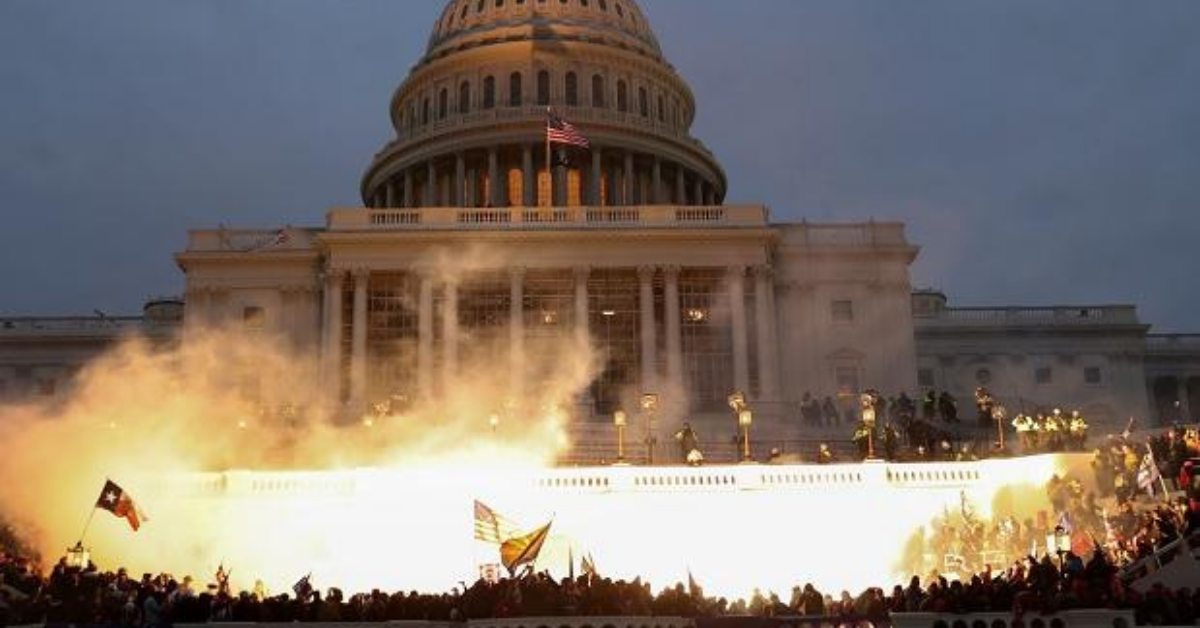
By Scott Wright, Director, Columban Center for Advocacy and Outreach
On January 6, 2021, America and indeed the world witnessed an unprecedented assault on our democracy and our democratic institutions. Thousands of people, incited to march on the Capitol by the President of the United States, stormed the halls of Congress, trashed, and looted the building, and threatened the safety of House and Senate members, their staffs, and the Vice President of the United States, forcing them to evacuate to safety. Events are still unfolding, as we approach the inauguration of the new President of the United States on January 20.
Such an assault on the Capitol is unprecedented in modern times. It has been characterized by Democrats and Republicans alike, as well as the media and faith leaders, as “an act of sedition,” “an armed insurrection,” “an assault on our democracy,” and “an act of domestic terrorism.”
Six people have died as a result of the assault on the Capitol, including two Capitol police officers, a woman who was shot trying to force her way into the building, and three who died of medical emergencies. We mourn each loss of life, but we condemn in no uncertain terms the violence and racism that incited the assault and resulted in these tragic deaths.
We have for too long seen truth assaulted by public officials, including the President of the United States, the media, and citizens who refuse to take responsibility for their words and actions. The assault on the Capitol was only the culmination of four years of polarization, division, and hatred.
Who is responsible for what took place on January 6? Clearly, those who engaged in acts of violence and destruction, storming the Capitol, bear direct responsibility for their actions and must be held accountable; but President Trump, by his tolerance, encouragement, and incitement of groups dedicated to racist hatred and violence, is responsible and must be held accountable as well.
There is no place for violence and the systemic racism that fuels it in our nation, especially when political leaders and the media perpetuate lies and incite assaults on our democracy and our democratic traditions. Words matter, and character matters, and when words are used to condone, tolerate, encourage, or incite hatred and violence, it must be condemned. Silence in the face of grave injustice and violence is complicity.
Systemic racism is deeply embedded in our nation’s history; its violence is deeply embedded in our social, economic, and political institutions, and its narrative proliferates in our culture and media. It is a soul sickness that affects all of us, sowing the seeds of hatred and racist violence.
President Trump, by condoning the violence and racist rhetoric of white nationalist and white supremacist groups in Charlottesville, Virginia on August 12, 2017, sowed the seeds of the racist and insurrectionist violence of those who stormed the Capitol on January 6, 2021. We are shocked, but we should not be surprised. “Those who sow the wind, will reap the whirlwind” (Hosea 8:7).
If Black Lives Matter activists had assaulted the Capitol in the way that white nationalists and white racists had done, the response of the police would have been very different.
For the past four years, and before, we have seen an assault on the life and dignity of human beings who bear within them the very “image and likeness of God”; and what we have seen is deeply troubling: African Americans have been murdered by racist police, Latino immigrant children have been separated from their parents and caged in detention, Native Americans have seen their lands and waters exploited by corporations for profit, women have been publicly disparaged and sexual assault has gone unpunished, and nearly 400,000 people have died from the Corona virus.
The new Administration and the new Congress provide us with an opportunity to change course, to boldly address both the systemic roots of racism and racial inequality in our country, as well as the global pandemic and the urgent needs of our people for economic security and employment.
Soon we will commemorate the life of Dr. Martin Luther King, Jr. Let us rededicate ourselves to his vision and legacy of Gospel nonviolence and take to heart his call to stand up for justice, stand up for peace, and join hands in a common struggle to abolish the systemic racism, poverty, and violence that threatens to tear our nation apart.
We must begin again the difficult work of healing our nation, and reach across political, ideological, and racial divides to seek reconciliation, based on truth and justice, and the firm faith that we are all sisters and brothers, children of one God, sharing a common home.
Pope Francis has repeatedly invited us to see that everything is interconnected, and we are all members of one human family: “There are no frontiers or barriers, political or social, behind which we can hide, still less is there room for the globalization of indifference” (Laudato Si’ 52).
Six months ago, Representative John Lewis, who was brutally beaten on the civil rights march in Selma, Alabama in 1965, wrote in his last will and testament: “When you see something that is not right, you must say something. You must do something. Democracy is not a state. It is an act, and each generation must do its part to help build what we called the Beloved Community, a nation and world society at peace with itself … Though I am gone, I urge you to answer the highest calling of your heart and stand up for what you truly believe.”
Together, we must redeem the soul of America.
Copyright © 2025 Columban Center for Advocacy and Outreach, Washington, D.C.